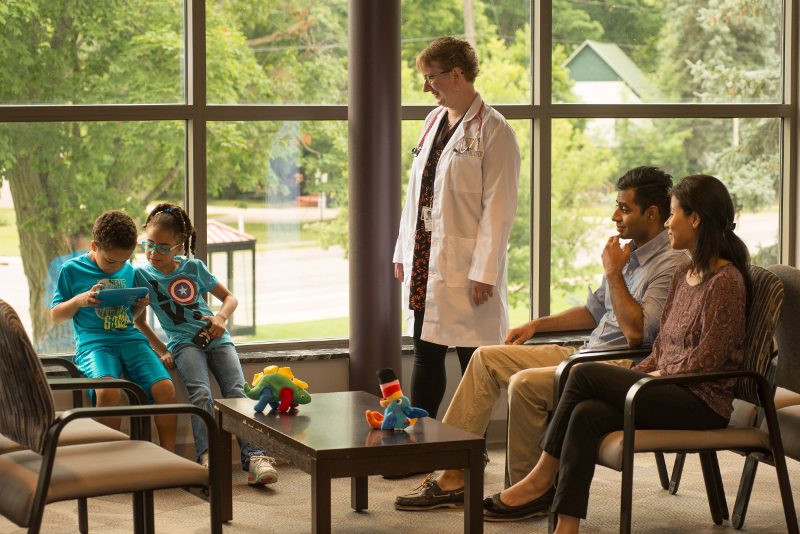Following the guidelines of the ACGME, and in partnership with the greater WMed community, we expose our residents to an exceptional three-year curriculum designed to promote child health and to train future educators and leaders of tomorrow. Each year of the residency training program includes 13 educational blocks (4 weeks each). During PGY 2 and PGY 3 years, residents work with the program director and faculty advisors to develop an individualized learning pathway that is tailored to meet career or fellowship goals.
PGY-1 Schedule
| Blocks | Rotation |
|---|---|
| 5 | Pediatric Inpatient |
| 3 | Pediatric Outpatient Clinic |
| 1 | Pediatric Emergency Medicine |
| 1 | Neonatal Intensive Care |
| 1 | Pediatric Intensive Care |
| 1 | Developmental Behavioral Pediatrics |
| 1 | Term Newborn Nursery |

PGY-2 Schedule
| Blocks | Rotation |
|---|---|
| 2 | Pediatric Inpatient Supervisor |
| 2 | Pediatric Outpatient Clinic |
| 1 | Pediatric Intensive Care |
| 1 | Adolescent Medicine |
| 1 | Pediatric Emergency Medicine |
| 2 | Subspecialty Electives |
| 2 | Individualized Curriculum |
| 1 | Neonatal Intensive Care |
| 1 | Pediatric Mental and Behavioral Health |
PGY-3 Schedule
| Blocks | Rotation |
|---|---|
| 2 | Pediatric Inpatient Supervisor |
| 2 | Pediatric Outpatient Clinic Supervisor |
| 1 | Term Newborn Nursery Supervisor |
| 1 | Neonatal Intensive Care Supervisor |
| 1 | Pediatric Acute Illness or Emergency Medicine |
| 1 | Pediatric Intensive Care |
| 2 | Required Specialty Electives |
| 2 | Individualized Supervisory Curriculum |
| 1 | Subspecialty Elective |
Morning Report
Morning report is a daily, interactive, resident-led conference. Residents present a clinical case to assembled students, residents, and faculty. Differential diagnosis, work-up, and management of the patient are discussed by residents and faculty. Key teaching points are reviewed and linked to American Board of Pediatrics content specifications.
Academic Half-Day
The academic half-day is an innovative and interactive curriculum that replaces the traditional lecture based noon conference curriculum. It is a protected learning environment free from patient care responsibilities. Educational content is provided in a variety of formats (ex: case-based teaching, small group reviews, interactive lectures, etc.) and is based on American Board of Pediatrics content specifications and Nelson’s textbook of Pediatrics domains.
Resident Wellness
The health and wellness of all within the WMed community is paramount to our mission at the medical school. We seek to provide our employees with the resources they need to achieve a proper work-life balance and give our students the tools to navigate the rigors of undergraduate and graduate medical education.
Our residents have numerous resources at their disposal to bolster their professional and personal objectives and goals.
Research and International Medicine
Our curriculum also includes the principles of research design, methodology, biostatistics and analysis, and the ethical principles of clinical and translational research. Our faculty provide research mentorship with a wide variety of interests and also collaborate with faculty in other departments and programs. The Data Analytics Services Unit and expert Medical Librarians also provide collaboration and assistance with research and scholarly projects. Most projects from our residents are presented at the medical school’s annual Kalamazoo Community Medical and Health Sciences Research Day. Many residents present projects at other prestigious regional and national venues, and are published in peer-reviewed journals.
In addition, residents may select a 4-week research block as an elective in their individualized learning pathway or participate in research longitudinally during their training. We also offer international medicine electives.

